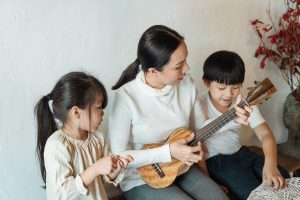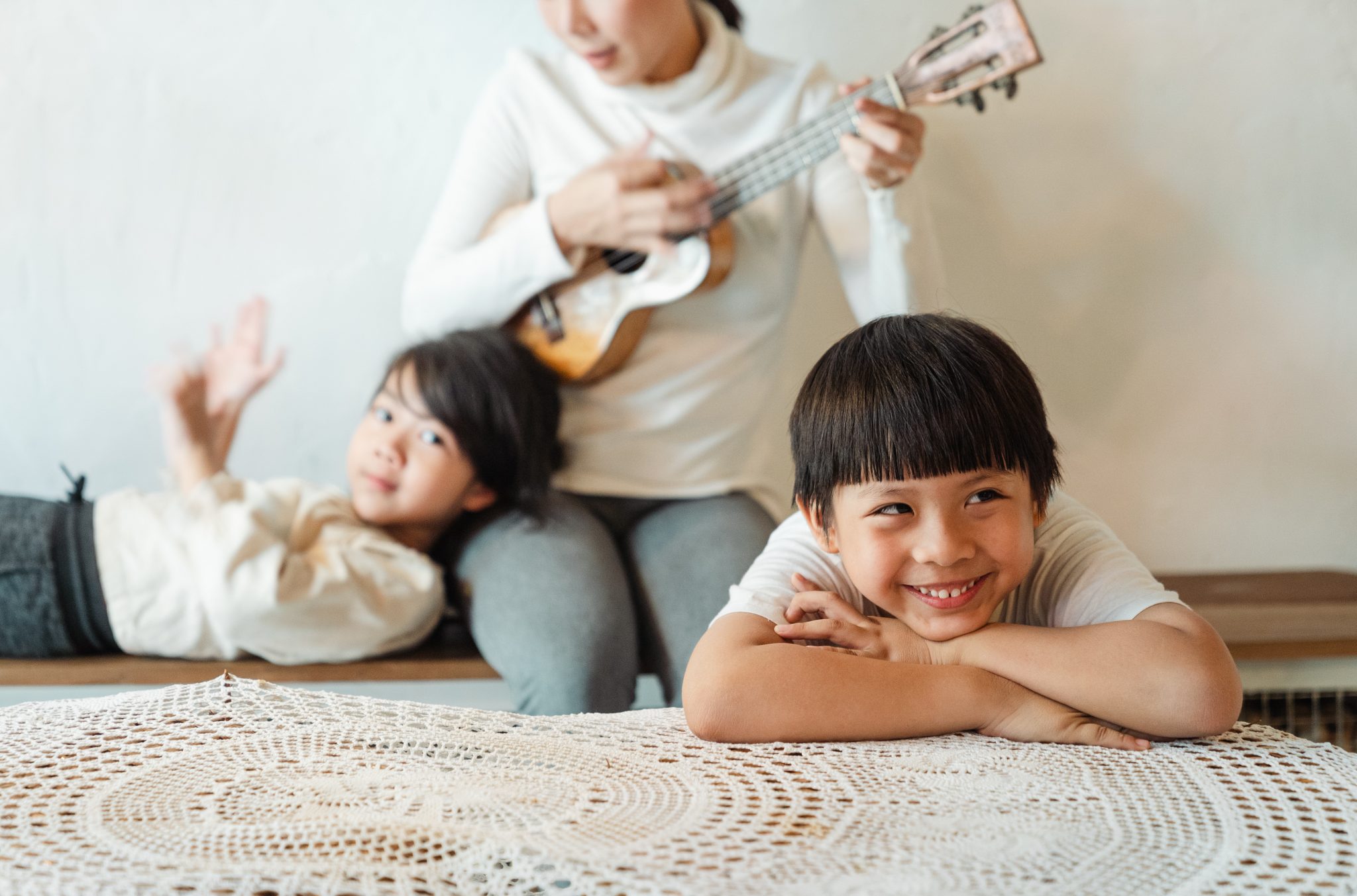Make Music Meaningful for Children With These Expert Tips
Words by Crystal Hammon
If you’re teaching your kids at home for the first time, there’s a good chance you’re getting an education all your own. Learning what works with children – and what doesn’t – has been a trial by fire experience for many parents, but it doesn’t have to be that way.
You can employ best practices in education, drawing on academic experts who are engaged in research about what helps students do well in school. Music plays a big role in that conversation because many studies suggest that it has a strong link to academic performance.
Classical Music Indy invited Penny Dimmick, DA, professor of music and coordinator of the music education program at Butler University, to share practical insights for parents about music’s role in helping their children perform better in school and grow as human beings.
“One thing we know,” Dimmick says, “is that a wide range of musical genres and active experiences with music can be incredibly valuable in a child’s development.” Learning to listen, to focus, to hear and to perceive nuance is a skill that pays dividends in all aspects of education.

Photo by Ketut Subiyanto from Pexels
The important thing is that listening not be a passive experience. Kids should be singing, moving and responding to make the experience meaningful. “We know that music impacts us, and, in some ways, that happens subliminally,” she says. “The question is, ‘How do we make it not just a passive experience, but an interactive experience such that they get all the benefits, not just emotionally, but in lots of different ways?'”
To that end, national and state academic standards include listening and responding to a varied repertoire of music by:
- audiating (hearing and giving meaning) music,
- describing, interpreting, analyzing and evaluating music and its elemental components, and
- interpreting and expressing music through movement.
For ideas about musical activities, Dimmick points parents to resources at the Feierabend Association for Music Education (FAME), a foundation that promotes active participation in music for all people. FAME was founded by John Feierabend, a music educator who spent his career at the University of Hartford, where he developed a well-researched theory of music education that encourages aesthetic, musical and general growth of the individual at all stages of development.
Feierabend is considered an expert on techniques that help students of all ages learn how to engage with music in a meaningful way. “His thinking is that the goal of music education shouldn’t be to develop professional musicians or the next Yo-Yo Ma,” she says. “Rather the goal is to develop everyone’s potential in music to become tuneful, beatful and artful, such that in 30 years, they will share musical experiences with their families.” Adults who learn these skills as children, she says, are much more likely to take their own children to concerts in all genres.
Asking questions, Dimmick says, is another way parents and educators can elicit a deeper response from kids. As they get older, kids are drawn to music that’s fun, loud, fast and has a strong beat. “If I play the Adagio for Strings by Barber for a class of fourth- or fifth-graders, they’re going to say, ‘It’s boring, I don’t like it, etc.,'” she says. “We’re not asking them to like it, but to make musical decisions about why they like or don’t like a piece. Sometimes, when they go deeper into a piece, they find that they do like it. That’s what helps them grow as a musician.
Although research suggests children achieve better academic results when they are involved in music, Dimmick urges parents to avoid becoming preoccupied with academic gains. “Music for music’s sake is important,” she says. “It’s part of what makes us human, and it doesn’t have to be ‘music because it makes us smarter.'”
If you are a parent who wants your child to reap music’s rewards, read “Teaching Your Kids At Home? Here’s How Music Can Help.”
Parents teaching kids at home can find additional music education resources below:
The National Association for Music Education (NAfME)
American Orff Schulwerk Association (AOSA)
Organization of American Kodaly Educators (OAKE)
All three organizations below also have affiliated Indiana organizations.
Indiana Music Education Association (IMEA)







Leave a Reply